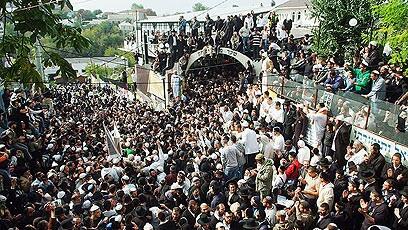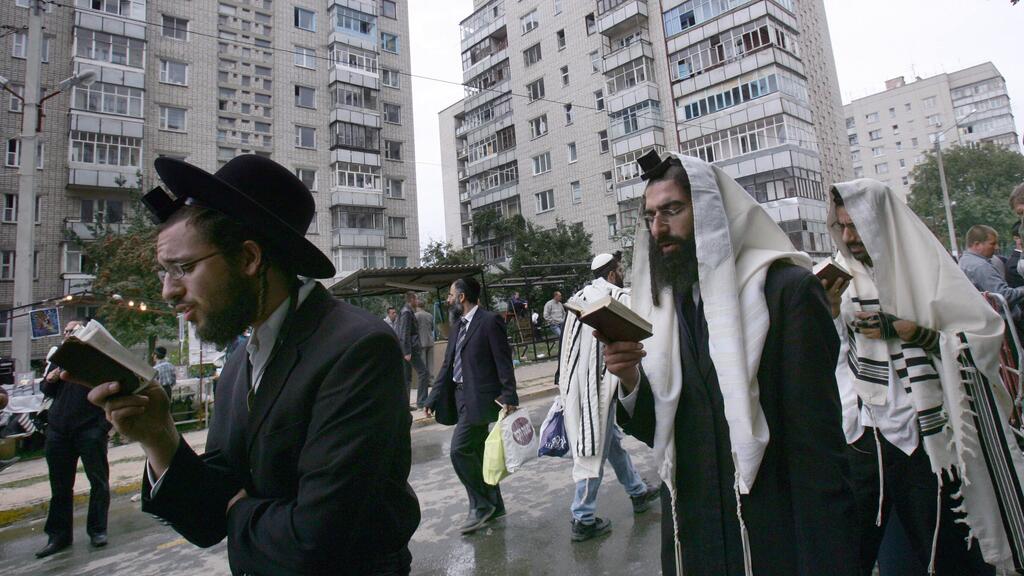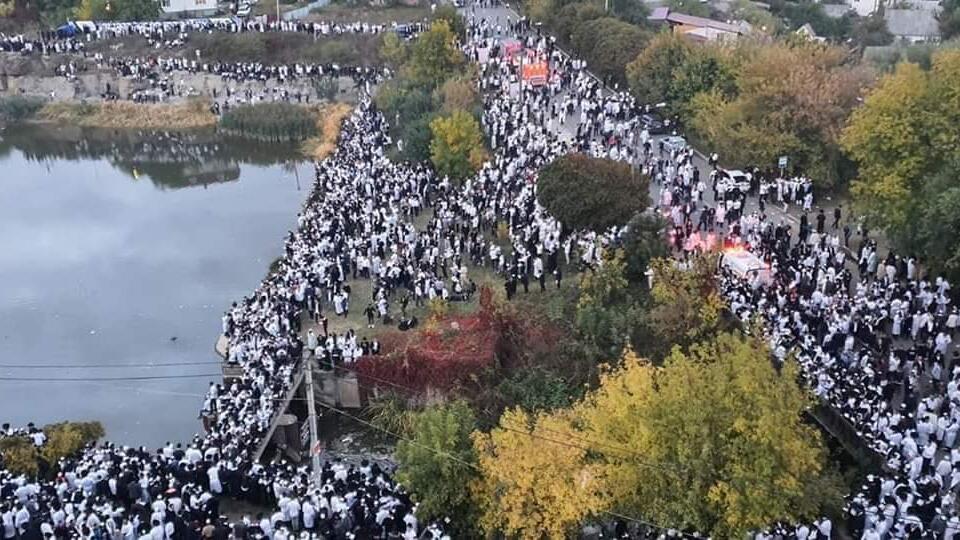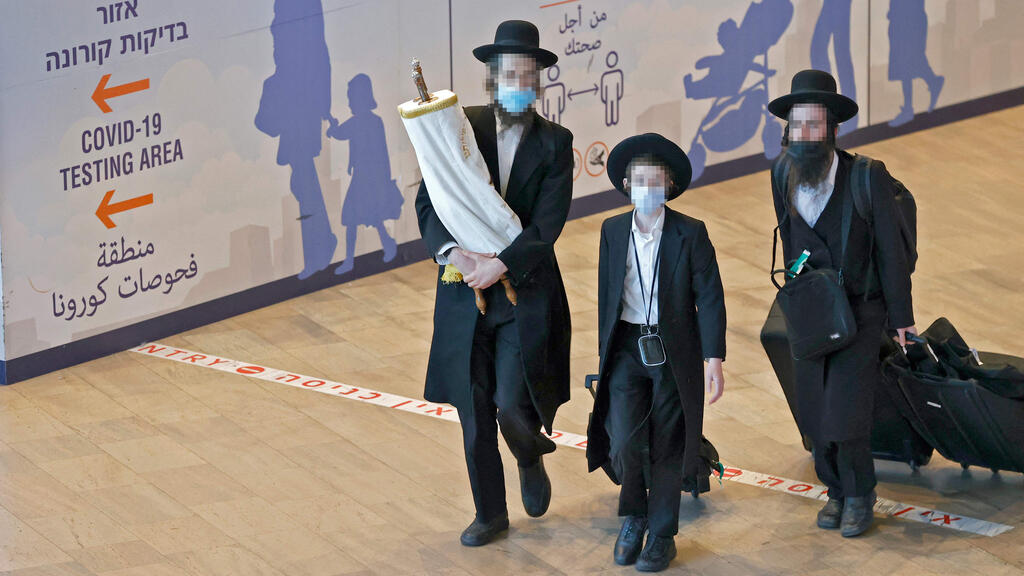Thousands of Israeli ultra-Orthodox Jews have vowed to brave the dangers of Russia's invasion of Ukraine and make a pilgrimage there during the Jewish new year, Rosh Hashanah.
Among those who said they would not be deterred by the war or by government travel warnings and head to the Ukrainian city of Uman was Avraham Burstein, 51, a musician and actor.
4 View gallery


Hasidic Jews at the gravesite of Rebbe Nachman in Uman during a previous Rosh Hashanah pilgrimage
(Photo: Israel Bardugo/Archive)
"It is like being in love, I simply have to go," he said as he tuned his accordion at his Yiddish music school in Jerusalem.
Burstein has traveled to Uman, some 200 kilometers (125 miles) south of Kyiv, every year since 1989, only missing the pilgrimage once, in 2020, when the COVID pandemic shut down international travel.
That year he still attempted to enter Ukraine and "tried from eight different countries", he chuckled, insisting that this year he would make it to Uman for the holiday which begins on September 25.
Most of those traveling are, like Burstein, members of the Breslov branch of Haredi Judaism, loyal followers of Rabbi Nachman, from Bratslav in modern-day Ukraine, who died in 1810.
Nachman was the founder of an ultra-Orthodox movement that settled in Uman in the early 1800s. Before his death, he asked that his followers visit his tomb to celebrate Jewish holidays.
"For us, it would be nice if he was buried in London, or in Amsterdam, even in Berlin," said Burstein. "But he chose to be there, and he asked us to come every year for Rosh Hashanah, so we have to go."
The pilgrimage was greatly suppressed during the era of the Soviet Union, and it was only after its collapse in 1991 that the annual visits began to balloon into the tens of thousands.
"All my life growing up, I prayed to God: please one time let me go to Rabbi Nachman's grave, just one time," said Burstein.
"It was so difficult" because of the stringent Soviet restrictions on entry, he said. "North Korea was easier to go to. It was like the moon."
Though he said he had not yet booked his ticket, Burstein planned to travel later this week with his two sons.
Prime Minister Yair Lapid this month urged citizens to avoid Uman, warning of a "life-threatening danger", and the Ukrainian embassy in Israel last week issued a similar warning.
Uman was badly hit by Russian missiles in the early weeks of the war, and just last month a civilian was killed by a Russian missile in the district, according to a statement from a regional official, Ihor Taburets, posted on messaging service Telegram.
Burstein said he could "understand the prime minister and president asking us not to go -- they are responsible for the security of the people".
But he argued that, given the frequent security incidents in his home country, "if you are coming from Israel, you don't worry about the danger".
Direct flights to Kyiv have been canceled since the Russian invasion of Ukraine began, yet thousands of pilgrims have already set out on their journeys.
One Haredi travel agent in Jerusalem, who asked not to be named for fear of rebuke in the community, said flights to countries bordering Ukraine had largely sold out for the rest of the month.
At Tel Aviv's Ben Gurion Airport last week, flights to Moldova and Romania were packed with Breslov Haredim heading for Uman.
"Why should we be worried? If you believe in God you're not afraid of anything," Avraham Elbaz said as he checked in for his flight to the Moldovan capital Chisinau.
In September 2020, thousands of ultra-Orthodox Jews were trapped for days between the borders of Belarus and Ukraine after Kyiv refused to allow them entry due to the COVID pandemic.
Before the pandemic, more than 50,000 pilgrims traveled annually during Rosh Hashanah, said Gilad Malach, director of the Ultra-Orthodox in Israel program at the Israel Democracy Institute think-tank.
He estimated that anywhere between 5,000 and 10,000 pilgrims would attempt the journey this year.
"The majority, when there are restrictions, understand the reasons not to go, whether that is COVID-19 or the war," Malach explained.
"But for the hardcore Hasidim, it's one of the basic commitments that they have," he added, saying their belief is that "you should do anything to get there".
"The more it is forbidden or hard, the more you are appreciated as a follower if you succeed in overcoming the obstacles and visiting the grave."
For Burstein, the war has only heightened the journey's importance.
"We hope that because of our prayer there, we can bring peace to the world," he said.




